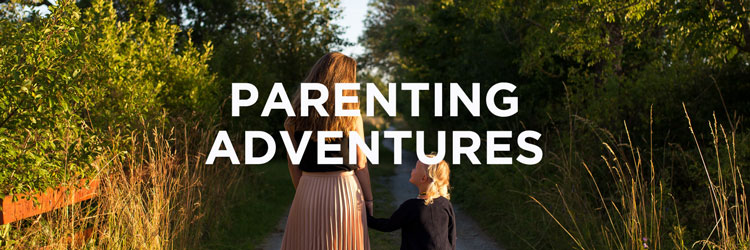At the end of March, we held a morning Parenting and Grand-parenting workshop called “It’s a Phase: Don’t Miss It”. A phase is a time frame in a kids life where we can leverage distinctive opportunities and relationship to shape their future. Over the next couple of months, I’d like to highlight and remind you of some of the things discussed at that workshop because you probably forgot many of the things you heard that morning. Don’t worry, we all do, it’s human…and care-giving doesn’t always seem to help the memory.
The point of the workshop was to equip and encourage you in whatever phase you and your kids are. Kids are constantly growing and learning and being shaped physically, emotionally, mentally, and spiritually. The temptation could be to allow our kids to grow up too fast because we just aren’t aware of how fast they are growing or we’re hoping the next phase will bring some maturity in them. The temptation could also be to allow our kids not to grow up too fast and we end up not preparing them for the next phase in life. Here are 3 basic principles that I, Steve Blumer, shared in our opening session. Things to consider at any phase.
- There are Significant Relationships that will influence their future.
At each phase there will be significant relationships that will influence your child’s future. As a parent of a baby, you’re pretty much that significant relationship. As they get older, you’ll be sharing that role with many others (whether you like that or not). Parents of younger children need to already introduce other relationships to their baby besides mom and dad. Because as they get older, you’re going to need other people speaking truth into their lives. Let them, and you, be comfortable with that. Start early to break that separation anxiety. Begin to foster that independent spirit while showing them that you have not left them abandoned.
As your kids get older, you’re going to want to find other significant relationships to influence them. Your child will get to the point where everything you say is stupid. Yet someone else will say the same thing and your kids will find it powerful. The church is a great place to find that partner in parenting. There is the youth pastor, adult volunteers and chaperones, and group leaders who are there speaking truth with love. I think it would be foolish not make church, kids church, youth group nights, youth retreats, etc. a priority for your child or teen.
Even though it takes a village to raise a child, maintain the thought that you will always need to be and you will always be a significant relationship in their life (even when they become an adult). As they get older, it will be easier for the pendulum to swing the other way and just let the youth pastor, the teacher, and the coach to influence their future. You need to maintain a great bond with your child in order to gain influence. It’s one of the main objectives of our Family Ministry at Hope Chapel: to Amplify the Family Bond. Don’t just let sports and clubs or even church guide your children’s calendar and influence. Too many families are so activity driven that they are rarely together bonding. If when you maintain influence in your kid’s life now, you stand a better chance of having influence with them later when it can matter even more. You must be involved in your child’s life.
So don’t miss it. Be a significant relationship in your child and teens’ life and intentionally work to put other people around them who are committed to influence a child and teen at every phase. There are significant relationships that will influence their future. Do you know who those are? Are you bringing the right people into your child’s life?
- Know Your Child’s Present Realities
Each child is unique. Their personalities, their desires, their habits, their physical mental and emotional make-up. And yet there are striking similarities. Babies are crying: “I need you…now”; Toddlers are saying “I want to do it”; Preschoolers are expressing “Look at me”; Young elementary kids are wondering “Is it fun…I don’t want to do it if it’s not fun”; Older elementary are asking “What are my friends doing…can I play with them”; Middle schoolers are proclaiming “I don’t like that…and I that know already”; Early high schoolers are discovering “This is me…where can I go”; Older high schoolers are excited for what’s next and voicing “trust me…I’ve got this.”
You need to know the phase your child is in and what the next phases look like. Before you can lead someone where they need to go, you need to know where they are. You can learn about where they are developmentally from books, groups, and other parents. The more you can learn about them, the better you can help them in their present reality. For example, the more I understand toddlers and preschoolers, the less crazy I’ll be when they are pushing my buttons. I’ll understand that they are not trying to always pushing the buttons on purpose. They are exploring and discovering how and what they can go. They want to try things on their own even if it involves messes. (You still make messes when you try something new.) I need to learn to embrace the mess or I’ll end up shutting down their drive to explore and discover when I express my frustration over the mess. I need to know that the mess they create is not as big of a deal compared to the mess I may create in their heart and mind from my yelling at them every time a mess happens. The more that I can learn, the more that I can know where they are and how to help them, and me, navigate the phases.
Not only do you need to learn what is common among children and teens, but you can and must also learn about them individually. The best way is simply by talking with them. There’s a difference between talking to them and talking with them. In fact, let’s be more specific and say it’s about them talking and you listening. It’s being in the presence without giving them direction, instructions, or advice. It’s keeping your mouth shut and listen. There are many children and teens who have adults speaking into their lives constantly. They have adults that give them advice, coach them, and teach them. They get instructions and directions all day, every day. But many don’t have adults who truly want to listen to their feelings, needs, and opinions. I’ll be honest, one of our sons loves to give his opinion about everything. Some of those times it sounds like criticism, it sounds like arguing, and it sounds like he’s trying to give his reason why he doesn’t need to do what we’ve asked him to do, etc. You may have experienced it. And the hard thing to do as a parent is to take the time to listen to his mental process rather than seeing it as defiance or laziness. But the more I cut him off, the more he’ll keep it inside and perhaps hold onto to un-dealt frustration. We don’t want him to grow up thinking he can’t really share with us. We are supposed to be significant relationships for his growth. We don’t want him to grow up thinking we don’t care about what he is thinking or feeling or needing.
When you listen, your child will know they matter. And they do need someone who believes in them. They will believe they can succeed. They need the confidence that God has given them the ability to try and accomplish. They will feel like they belong. When you feel all alone and like an alien, it stinks. But when you feel like you belong, there’s a sense of hope and assurance. They need that. They will discern what they should do. They need to know you trust them. You need them to make wise choices. So let them know that they can make decisions and they won’t always need to wait for your instruction or approval.
So don’t miss it. The better you understand who your kids are now, the better they’ll understand who they’re meant to be. Discover their present realities and help them to navigate their current experiences.
- Engage in that Phase’s Distinctive Opportunities
Because a child and a teenager is constantly growing and changing physically, emotionally, mentally, spiritually, and relationally, each phase has distinctive opportunities that aren’t necessarily present in other phases.
It’s going to be hard to teach your 3 yrs. old the importance of hard work and generosity by mowing the next door neighbor’s yard for the summer. But you could have that opportunity when they are 12 or 13. And you’ll probably won’t have that opportunity when they are 17 or 18. At 3 yrs. old, you’d be happy for them to pick up their toys and to not bite their siblings. At 17 yrs. old, hopefully they’ve worked off that lesson of hard work and generosity and are paying for their own gas, phone, and their mission trip to help build orphanages overseas.
You’ll have distinctive opportunities to walk your children and teens through the values such as character, integrity, patience, responsibility with their possessions and money and time, as well as their potential to know God, to understand His plan for sin through Jesus Christ, and to experience how God has gifted them uniquely to make a difference in the church and in their culture in different ways in their journey. There’s a lot of exciting opportunities in each phase.
These phases will sometimes seem to last for a long time while others will go by so quickly. But be sure that the phases will not last. That can be reassuring or alarming. That baby who needs you NOW, won’t be demand your nurture when they are 16. Yet, it’s also a reminder that our time to leverage a phase with its distinctive opportunities will soon disappear into a new phase. So the emphasis is to NOT MISS any phase. Embrace them. Cherish them. And anticipate the next one.
Each time-frame in a child’s life carries unique opportunities to help them develop confidence, character, identity, and faith.

